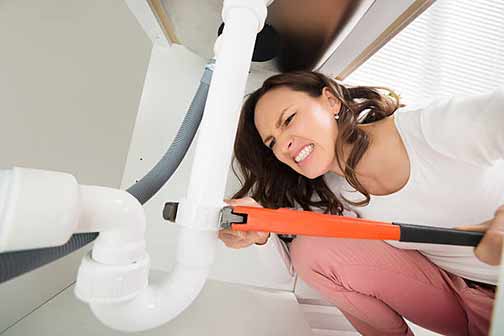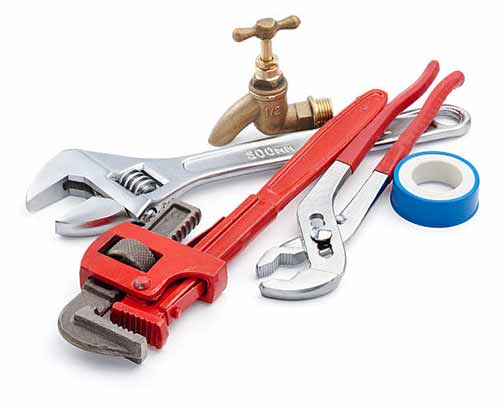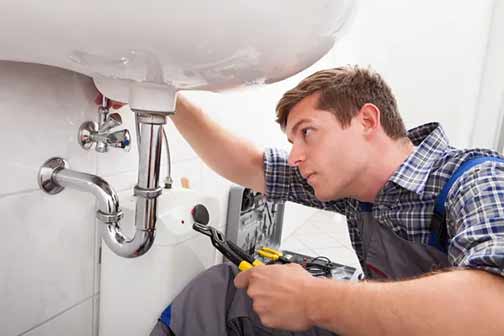
Do you always call a plumber every time you have a plumbing problem in your home?
If you said YES to the question, you may be wasting money on issues you can easily solve by yourself, says AIM Real Estate team. It is true that plumbing systems are vast and complicated, but not every plumbing problem requires the attention of a professional plumber.
Actually, there are lots of plumbing issues in your home that you can fix by yourself. All you need is patience and a few tools every home should have. Knowing how to fix minor plumbing problems in the house will save you a ton of money.
What are the plumbing problems in your home that you should tackle by yourself? What tools do you need to solve these plumbing issues? And how do you know when to DIY a problem versus when to call a professional plumber?
Must-have tools for plumbing DIY fixes
- Adjustable wrench: A versatile tool for general DIY. Use it to loosen and tighten pipes, nuts, and bolts of different sizes.
- Pipe wrench: A different kind of wrench with serrated edges that make it easy to grip and turn pipes.
- Plungers: For unclogging toilets, sinks, and drains. You need two types of plungers: a toilet plunger and a sink plunger.
- Drain snake and auger: A manual drain snake is used when the plunger fails to clear your clogged drain. You may also want to purchase an auger as a power drill attachment.
- Hacksaw: This is for cutting through different kinds of materials – pipes, bolts, screws, etc. It is useful for other DIY jobs.
- Plumbers’ Tape: Also known as Teflon tape. It is for sealing threaded connections – so as to prevent leaks when joining pipes or installing taps, showerheads, etc.
- Pipe cutter: Easily cut through copper, brass, or plastic pipes without leaving rough edges. It is essential for proper pipe fitting.
- Glue, Plumbers’ putty, and putty knife: You need glue when working with PVC. Putty is for sealing joints. A putty knife is for removing or applying putty.
- Rubber safety gloves: When doing plumbing jobs, you may have to handle gross, unsanitary stuff. Rubber gloves are for personal safety and hygiene.
- Flashlight: Plumbing jobs often require you to work in dark, tight spaces. A powerful flashlight is essential for your safety and for fixing problems efficiently.

Simple plumbing DIY fixes any homeowner can tackle
Unclogging a sink or drain
Slow and clogged drains happen in your home all the time. Fixing them is fairly easy if the blockage is not deep inside the line. A plunger, drain snake, or auger will fix the problem.
Fixing a leaky faucet
A dripping faucet is caused by worn-out components. This problem does not need a professional plumber. Just disassemble the faucet and replace the damaged parts.
Stop a running toilet
The culprit is usually the flapper inside the tank or a float and ball assembly set too high. Replace the flapper to fix the problem or adjust the float and ball assembly.
Replace a showerhead
A straightforward job if you know how to use a wrench. Unscrew the old showerhead with a wrench and replace it with a new one after applying the plumber’s tape to the joint.
Fixing minor pipe leaks
Leaks caused by a small hole in the pipe or a loose joint do not need the attention of a plumber. Tighten the joint and seal it or patch up the pipe to fix the leak.
Basic pipe insulation
To insulate water lines against winter temperatures, you just need to cut the insulation to length, wrap it around the exposed pipe, and hold it in place with tape, if necessary.

When to call a professional plumber
Just as it is important to know how to fix minor plumbing problems in your home, it is also important to understand the limits of your abilities. Some plumbing jobs are best left to a professional plumber. When should you call an expert plumber instead of trying to DIY a problem?
When you have a plumbing emergency
Plumbing emergencies are problems that threaten the structural elements of your building, prevent access to the plumbing fixtures, and pose a health risk. They should be left to a professional plumber, for example, burst pipe emergencies, hidden leaks, and backed-up drains.
Problems beyond your skill level
Even if a plumbing issue is not an emergency, if it requires a lot of know-how, the job should be done by a professional plumber. For instance, to prevent future problems, new fixture installations should be done by a professional.
Complying with codes and regulations
If there is a risk that you may violate your area’s plumbing codes and regulations, you should let a professional plumber handle the job. Example: every plumbing job that needs a permit.
Lastly, when hiring a local plumber, make sure it is a plumber who is willing to improve your knowledge of your plumbing to help you prevent, diagnose, and solve plumbing issues in your home better.

